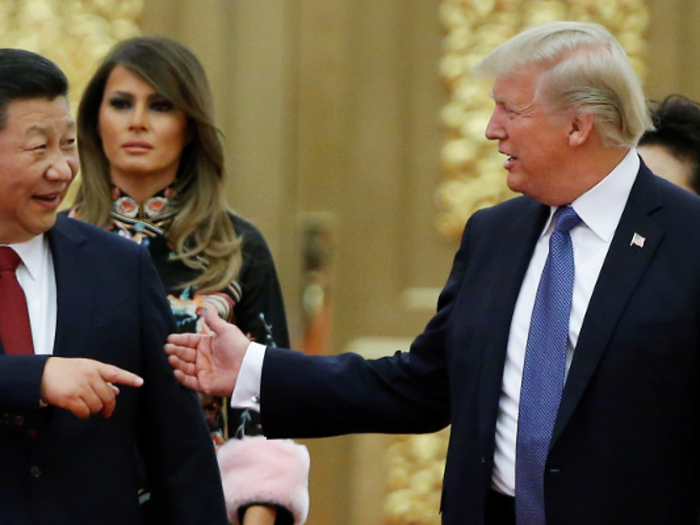
Companies have been dealing with a lengthy bout of political uncertainty as the US-China trade spat carries on.
According to Goldman, executives broadly are optimistic on the economic outlook for 2020 based on uplifting consumer data. But they are still concerned about the outcome of the trade war, the firm said.
"Uncertainty remains high and executives expect to be dealing with US-China trade tensions for the foreseeable future. Consequently, inventories have declined and dealer demand has dropped," Goldman's analysts wrote in a note to clients on November 8.

When companies are uncertain about the future, they typically think twice about capital expenditures and spending.
As a result of the recent political unpredictability, Goldman said that "many executives highlighted deferring capital expenditures as they approached investments with increased caution."
The analysts added: "Firms also outlined plans to divert cash from capital projects and buybacks in favor of strengthening the balance sheet."
S&P 500 cash spending fell to a decade-low in the second quarter as CEO confidence waned. The level stabilized during the third quarter, Goldman said.

The upcoming presidential election was also a key focus for companies this quarter, Goldman said.
In recent months, some of Wall Street's biggest investors have called out democratic candidate Elizabeth Warren for her regulatory positions and wealth-tax proposal.
According to Goldman, while executives are planning for different outcomes in the upcoming election, they remained focused on long-term plans.
"Some managers discussed the difference between what is mentioned by politicians and what would eventually be implemented, expressing doubt that proposed policy changes would be realized," the firm wrote.
 US-China tariff war could benefit several sectors in India while harming a few others
US-China tariff war could benefit several sectors in India while harming a few others
 Amid heatwave, Delhi's power demand soars to May's highest ever at 7,572 MW
Amid heatwave, Delhi's power demand soars to May's highest ever at 7,572 MW
 84% of Indian small businesses anticipate robust growth in 2024: CPA Australia survey
84% of Indian small businesses anticipate robust growth in 2024: CPA Australia survey

Copyright © 2024. Times Internet Limited. All rights reserved.For reprint rights. Times Syndication Service.